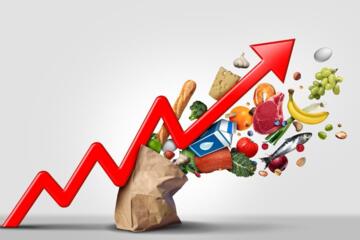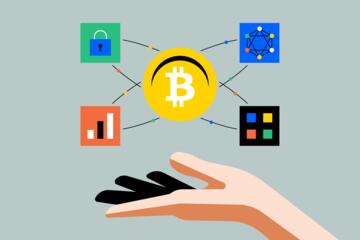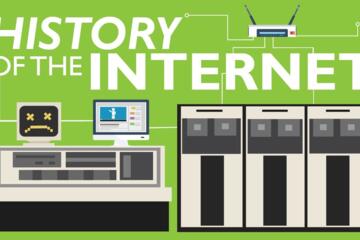What Is Inflation?
Inflation is the rate at which the general level of prices for goods and services rises, leading to a decrease in purchasing power. In simpler terms, it means that over time, your money buys less than it used to. For example, if a loaf of bread costs $2 today and the inflation rate is 2%, next year that same loaf of bread might cost $2.04.
Why Does Inflation Happen?
Inflation can be caused by a variety of factors, but the two main types are:
-
Demand-Pull Inflation: This occurs when demand for goods and services exceeds supply. When there's high demand, businesses can charge more for their products, leading to higher prices.
-
Cost-Push Inflation: This happens when the cost of producing goods and services increases. For instance, if the price of raw materials or wages rises, businesses may pass these increased costs onto consumers in the form of higher prices.
Other factors that can contribute to inflation include:
- Monetary Policy: When a country's central bank increases the money supply, it can lead to inflation as there is more money chasing the same amount of goods and services.
- Exchange Rates: If a country's currency loses value relative to other currencies, the cost of imported goods can rise, contributing to inflation.
- Expectations: If people expect prices to rise in the future, they may start to spend more now, increasing demand and driving up prices.
Measuring Inflation
Inflation is typically measured using an index that tracks the prices of a basket of goods and services over time. The most common index used is the Consumer Price Index (CPI), which measures the average change in prices paid by consumers for a basket of goods and services.
How the Consumer Price Index (CPI) Works
The CPI is calculated by taking the average price change for each item in the basket and weighting it based on its importance. For example, housing costs are given more weight than entertainment costs because people spend a larger portion of their income on housing. The percentage change in the CPI over a period of time represents the inflation rate.
The Effects of Inflation
Inflation can have both positive and negative effects on the economy and your personal finances.
Negative Effects
- Reduced Purchasing Power: As prices rise, the value of money decreases, meaning you can buy less with the same amount of money.
- Uncertainty: High or unpredictable inflation can create uncertainty, making it difficult for businesses to plan and invest.
- Income Redistribution: Inflation can redistribute income from savers to borrowers. For example, if you have savings in a bank account, inflation can erode the real value of your savings. Conversely, if you have a fixed-rate mortgage, inflation can reduce the real value of your debt.
Positive Effects
- Encourages Spending and Investment: Moderate inflation can encourage people to spend and invest their money rather than hoarding it, which can stimulate economic growth.
- Adjusts Relative Prices: Inflation can help adjust relative prices, allowing for the smooth functioning of markets. For example, if the price of one good rises due to increased demand, it signals to producers to increase supply.
Protecting Your Finances from Inflation
While you can't control the rate of inflation, there are steps you can take to protect your finances and mitigate its impact.
Invest Wisely
Investing in assets that tend to appreciate in value over time, such as stocks, real estate, or commodities, can help you stay ahead of inflation. These investments have the potential to provide returns that outpace the rate of inflation, preserving or even increasing your purchasing power.
Diversify Your Portfolio
Diversification is key to managing risk and protecting your investments from the effects of inflation. By spreading your investments across different asset classes, you can reduce the impact of inflation on your overall portfolio. For example, if stocks are performing poorly due to high inflation, bonds or real estate might be performing better, balancing out your returns.
Consider Inflation-Protected Securities
Inflation-protected securities, such as Treasury Inflation-Protected Securities (TIPS) in the United States, are designed to help protect investors from inflation. The principal value of these securities increases with inflation and decreases with deflation, providing a hedge against inflation risk.
Save and Budget
While saving money is important, it's also crucial to budget and manage your expenses wisely. During periods of high inflation, prioritize your spending on essential goods and services, and look for ways to cut back on non-essential expenses. Additionally, consider saving in accounts that offer higher interest rates to help combat the effects of inflation.
Increase Your Income
If possible, look for ways to increase your income to keep up with rising prices. This could involve negotiating a raise, taking on a side job, or investing in education and skills development to advance your career.
Conclusion
Inflation is a natural part of the economic cycle, but it can have significant impacts on your financial well-being. By understanding what inflation is, why it happens, and how it affects you, you can take proactive steps to protect your finances and make informed decisions. Investing wisely, diversifying your portfolio, considering inflation-protected securities, saving and budgeting, and increasing your income are all strategies that can help you stay ahead of inflation and secure your financial future. Remember, the key to managing inflation is to stay informed, plan ahead, and make smart financial choices.









